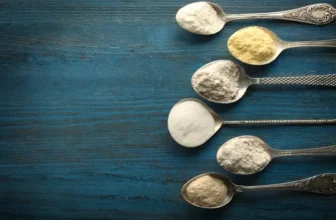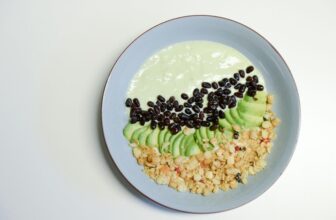
When it comes to building muscle, protein plays a crucial role in your journey. But the question remains – how much protein do you really need to support optimal muscle growth? Understanding the individual factors that influence your protein requirements is key. From your activity level to your specific goals, finding the right protein intake tailored to your needs is vital. So, how can you determine the precise amount of protein necessary for your muscle growth aspirations? Let's explore the science behind protein needs and muscle development to shed light on this essential aspect of your fitness regimen.
Protein's Role in Muscle Growth
To build and repair muscle tissue effectively, you need a sufficient intake of protein. Protein plays a crucial role in muscle growth as it provides the necessary building blocks for muscle repair and development. When you engage in activities like weightlifting or intense exercise, you create tiny tears in your muscle fibers. Protein helps to repair these tears, leading to muscle growth and strength gains. Without an adequate protein intake, your muscles may struggle to recover and grow optimally.
Additionally, protein is essential for maintaining muscle mass, especially as you age. As you get older, your body may become less efficient at utilizing protein, making it even more important to ensure you're consuming enough. Including protein-rich foods in your diet such as lean meats, poultry, fish, eggs, dairy products, legumes, and nuts can help support muscle growth and repair. Whether you're an athlete looking to enhance performance or simply seeking to maintain muscle mass, prioritizing protein intake is key to achieving your goals.
Recommended Protein Intake Guidelines
For optimal muscle growth and repair, understanding the recommended protein intake guidelines is essential. The amount of protein you need depends on various factors, including your age, weight, activity level, and fitness goals.
As a general guideline, aim to consume between 1.2 to 2.0 grams of protein per kilogram of body weight per day. For example, if you weigh 70 kilograms, you should aim to consume between 84 to 140 grams of protein daily.
It's important to distribute your protein intake evenly throughout the day to support muscle protein synthesis. Including protein sources in each meal and snack can help maximize muscle growth and repair. Additionally, consider the quality of protein you consume. Opt for complete protein sources that provide all essential amino acids, such as lean meats, poultry, fish, eggs, dairy products, and plant-based sources like quinoa, tofu, and legumes.
Meeting your protein needs through a balanced diet is crucial for achieving your muscle growth goals. Be mindful of your protein intake and adjust as needed based on your individual requirements and progress.
Protein Timing for Optimal Muscle Growth
Distribute your protein intake evenly throughout the day for optimal muscle growth and repair. By spreading out your protein consumption, you provide your muscles with a consistent supply of amino acids, which are the building blocks necessary for muscle protein synthesis. This approach ensures that your muscles have what they need to recover and grow after workouts.
To maximize muscle protein synthesis, aim to include a good source of protein in each of your meals and snacks. This steady intake of protein will help maintain a positive protein balance throughout the day, supporting muscle repair and growth.
Additionally, consuming protein-rich foods before and after your workouts can be particularly beneficial. Prior to exercise, protein can help prime your muscles for growth, while post-workout protein intake can support muscle recovery and repair. Including protein in these time frames can enhance the muscle-building process and optimize your results. Remember, consistency in protein intake timing is key to supporting your muscle growth goals.
Protein Quality and Muscle Synthesis
Spreading out your protein intake evenly throughout the day not only supports optimal muscle growth and repair but also plays a significant role in determining the quality of protein for muscle synthesis. Protein quality is measured by the amino acid profile and digestibility of the protein source. High-quality proteins contain all essential amino acids needed for muscle building and repair. Animal-based proteins like meat, poultry, fish, eggs, and dairy are considered complete proteins as they provide all essential amino acids in adequate amounts. Plant-based proteins such as beans, legumes, nuts, and grains can also be valuable sources of protein but may require combining different plant protein sources to ensure all essential amino acids are consumed.
For muscle synthesis, it's essential to include a variety of high-quality protein sources in your diet. Consuming a mix of animal and plant-based proteins can help ensure you're getting a complete amino acid profile for optimal muscle growth and repair. Remember, the quality of protein you consume matters just as much as the quantity for achieving your muscle-building goals.




